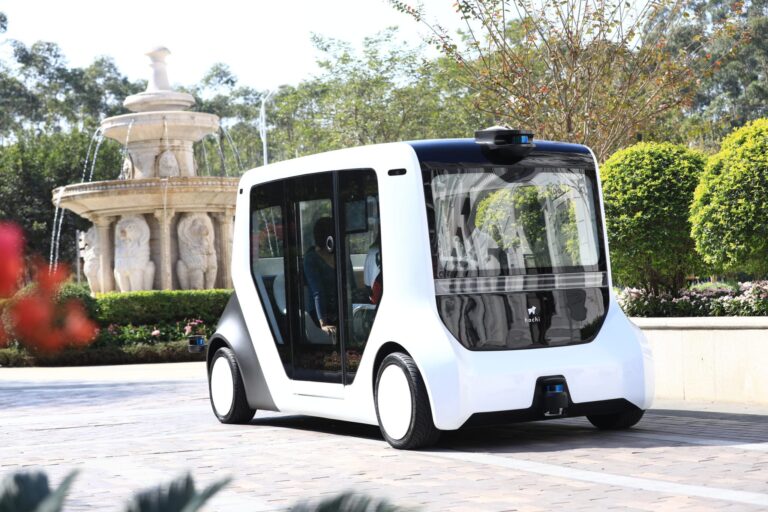Chinese real estate company Seedland Group has launched China’s first driverless commuter vehicle pilot project.
Designed for use by residents of Seedland’s smart communities, the battery-electric Hachi Auto uses lidar and vision technologies, multi-sensor fusion algorithms, 3D obstacle detection and speed estimation systems.
The vehicle, which can carry three people at a time, can move forwards and backwards, turn around within its operating environment, and automatically calculate its own avoidance path without human intervention.
Furthermore, Hachi Auto can operate in various climatic conditions – though Seedland Group recommends that operation be suspended in severe weather – and utilises a positioning algorithm with an accuracy of 2-5cm that safeguards the vehicle from GPS signal instability between buildings.
The algorithm is the result of more than 2,000 road tests and 100,000km (62,000 miles) performed without human intervention.
Hachi Auto also connects to Seedland’s Smart Life System in residential communities to form an intelligent and cooperative transportation network.
It supports multiple functions such as car-hailing and community buses, and reacts to complex environments 24-hours a day. Vehicles can be monitored in real time to facilitate maintenance and management, as well as receipt of orders and dynamic route planning.
Hachi Auto is used via the Hachi app. Users log in, select their community and send an order. The vehicle then arrives minutes later.





